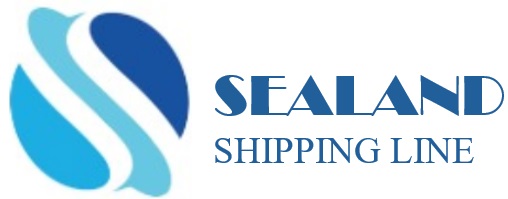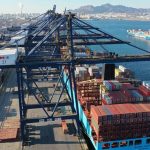
Preparations are still underway to get Ukrainian grain shipments exported across the Black Sea, but international shipping still has many unanswered questions as to the safety of the operation.
Russia, Ukraine, Turkiye and the United Nations (UN) hammered out a deal last Friday to create safe shipping corridors from three Ukrainian Black Sea ports to move last year’s harvest. Combined, the three ports of Yuzhne, Chornomorsk, and Odesa accounted for 65% of the country’s total grain exports over the past five years, according to data from BIMCO.
The deal is valid for 120 days, with an option to extend, and it allows bulkers to be escorted to the ports through a safe corridor. To create a navigable passage, the corridor will have its sea mines removed, a process that is expected to take one to two weeks.
Over 20m tonnes of Ukrainian grains are ready for export and the country’s grain traders union expects around 25m tonnes more to come from the 2022 harvest. With the wheat harvest underway and the maize harvest to start in September, a swift export of grain is needed to ensure space in silos for the new harvests.
Initially, only ships owned by nationalised Ukrainian companies will be transiting the humanitarian relief corridor. Commercial ships will follow in subsequent days, after regulation and advisories from the newly formed Joint Coordination Center (JCC) in Istanbul have been published.
Frederick Kenney, director of legal and external affairs at the International Maritime Organization and a retired US Coast Guard rear admiral and judge advocate, has been put in charge of the JCC.
Data from shipping platform Sea/ today shows none of the 80-plus mothballed ships have left Ukrainian ports and no vessels have indicated they are calling at the war-torn country yet. All Ukrainian seaports have been closed since Russia invaded on February 24 this year.
“With this deal, the UN hopes to increase monthly grain exports from Ukraine by 5m tonnes. However, since over the past five years, these three ports have not ever handled such a high amount of grain, meeting this target could prove to be a challenge,” said Niels Rasmussen, chief shipping analyst at BIMCO. “Even if port logistics accelerate to expedite exports, the need to escort ships in and out of the ports is likely to cause some congestion.”
To accelerate exports the Danube ports, as well as land routes, will likely continue to play an important role in the shipment of Ukrainian grain in the short to medium term.
“A significant obstacle to Ukrainian grain exports will be the voyage risk and corresponding insurance premiums. For the shipping of Ukrainian grain to be attractive, high rates will be necessary to mitigate risk-related expenses,” said Rasmussen. “Russia’s recent missile strikes in ports such as Odesa will add to the insecurity and uncertainty of operating in the Black Sea.”
The issue of insurance is one that continues to vex. The UK’s foreign secretary Liz Truss said on Monday, during a televised leadership debate, that “an agreement has been reached” with Kyiv on maritime insurance for getting grain out of Ukraine. Ukraine’s infrastructure minister Oleksandr Kubrakov cautioned yesterday that in fact no deal had been concluded, but he was hopeful an agreement could be reached soon.
Beyond insurance, there is the issue of crew safety, something touched on by InterManager secretary-general Kuba Szymanski at an online meeting of members yesterday.
“There is no way we can send anybody there because the green corridors are not approved, we have not got a deal with Russia, we have not got a deal with Ukraine. Therefore the shipmanagement industry is on standby, if it is safe to do so we will be sending ships there,” Szymanski said. InterManager is the global association for shipmanagers.
Looking at the overall situation, maritime security consultants Dryad Global suggested that despite assurances within the terms of the treaty, vessels participating in the Black Sea Grain Initiative will be exposed to significant ongoing threats during transit through Ukrainian territorial and international waters and whilst at anchor in the ports of Odesa, Chernomosk and Yuzhnhnyi.
“The persistent threat of sea mines remains the most prominent threat, although such a threat can in part be mitigated via both effective mine avoidance and mine clearance where required. The additional threats of Russian aggression and continued commitment to the terms of the agreement are harder to account for, and as such present a potentially greater threat to the continuation of the agreement over the longer term,” Dryad Global stated in a new report published this week.
The first week of the operation will be highly significant for the initiative, Dryad Global argued, as these types of agreements are most vulnerable to being broken in their early days.
“Whilst there are strong reasons for Russia to act strictly within the bounds of their agreement with Turkiye and prevent any attacks on grain terminals and ships, this conflict has repeatedly demonstrated the importance of never assuming Russia will behave within the bounds of reason,” Dryad Global warned.


